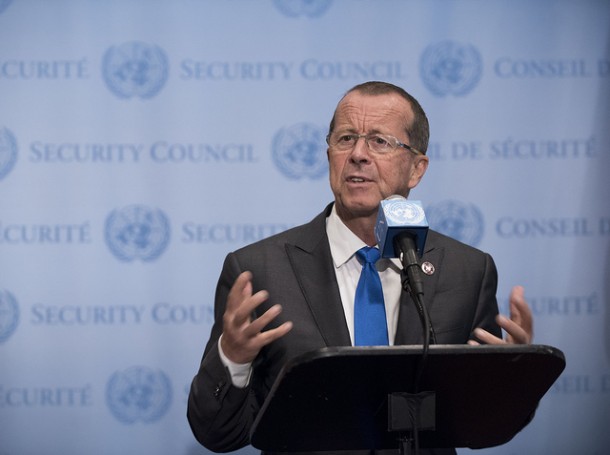Diplomatic negotiations for a peaceful solution in Libya have continued for months, long-lasting tension and conflicts notwithstanding.
Following Qaddafi’s collapse, the country has been extremely unstable. Rebel forces were highly fragmented, and soon coalesced under several local military councils, taking control of towns or regions. Libya has even had two rival parliaments (and governments) since 2014: the internationally recognized HoR [House of Representatives] in Tobruk, east of Benghazi, and the GNC [General National Council] in Tripoli.
In October 2015, the former UN Special Representative for Libya Bernardino Leon announced an agreement on the name of Mr Fayex Sarraj as Prime Minister for a Government of National Accord. Further discussion on a final, resolutive agreement, however, has been repeatedly delayed.
Finally, on December 17, representatives from the two parliaments signed a political agreement in Skhirat, Morocco. Martin Kobler, recently appointed UN Special Representative for Libya, praised the achievement but remembered that it is just the first step on building “a democratic Libyan state”.
“We must not forget that this is the beginning of a difficult journey. There is a critical need for national reconciliation and an inclusive national security dialogue. Urgent solutions must be found to bolster the Libyan-led fight against terrorism and in particular the threat of Daesh. The dire humanitarian situation in Benghazi and other areas needs to be addressed as a matter of highest priority, including through the establishment of a dedicated reconstruction fund for Benghazi. The concerns of the Eastern and Southern constituencies should be brought to the forefront. This work must start immediately. The signing of the Libyan Political Agreement is the first step on the path of building a democratic Libyan state based on the principles of human rights and the rule of law.”

